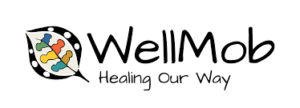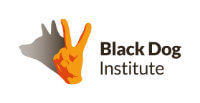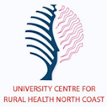Written by Angela Sheridan, WellMob

WellMob is a library of online resources for Aboriginal and Torres Strait Islander peoples based on the holistic model of social and emotional wellbeing that is more than just mental health. It includes apps, podcasts, videos, fact sheets and websites. These resources support connection to identity, culture and community which is important as a protective factor for First Nations wellbeing.
New resources are added to the WellMob website each month that meet criteria to ensure they are culturally appropriate, Social and Emotional Wellbeing (SEWB) focused and are developed by or in close consultation with Aboriginal and Torres Strait Islander people.
Coming soon!!
With over 300 online social and emotional wellbeing resources on the WellMob website our team has created…
Resource Sheets for Workers
These are short-cuts to the best online resources on a range of health and wellbeing topics.
There are also Resource Sheets for non-Indigenous practitioners that enhance their cultural understanding and supports them in providing culturally informed mental health care.
Stay connected to not miss the launch of these Resource Sheets for Workers in Mid July!
Stay connected to WellMob through WellMob Linktr.ee by following us on social media, reading our Blogs and subscribing to our e-newsletter. This helps to keep you informed about new resources provides tips and tricks of using digital mental health tools in your work with Aboriginal and Torres Strait Islander people.
Some of the benefits of using culturally appropriate resources with Aboriginal and Torres Strait Islander clients
Aboriginal and Torres Strait Islander clients often feel more comfortable and open when they perceive that their mental health care provider respects and values their cultural background.
- Cultural responsiveness: Indigenous specific social and emotional wellbeing content provides workers with valuable knowledge and insights into the cultural and historical contexts that affect Aboriginal and Torres Strait Islander people’s mental health. This helps workers provide more culturally responsive mental health care.
- Bridge gaps in health literacy: Indigenous clients may face challenges in accessing and understanding mainstream mental health resources due to cultural and language differences. WellMob’s resources can help bridge these gaps by offering information in a culturally appropriate and accessible format. Use these resources to support clients in gaining a better understanding of their health issues and treatment options.
- Open conversations: Engage your clients in conversations around the resources you share to break down stigma around tricky topics. Encourage clients to reflect on the content, ask questions to draw out their thoughts and perspectives. This collaborative approach helps build rapport, trust, and a shared understanding of their health and wellbeing goals. Respect their knowledge and lived experience acknowledging your role as a learner. Approach the resources with humility and curiosity, acknowledging that you may not have all the answers. Create a safe and non-judgmental space where clients can share their thoughts and insights. Be open to learning from their perspectives and experiences.
- Tailor resource selection to individual client needs: Assess your clients’ specific needs and goals, as well as their familiarity with and access to online resources. Look for resources on WellMob that align with those needs, whether related to mental health, social and emotional wellbeing, cultural practices, or specific issues affecting Indigenous communities. You can be more culturally sensitive and identify resources that may resonate more with their experiences. Look for resources that may be in their first language or from their country.
- Tailored Interventions: Indigenous-specific online resources often offer culturally appropriate tools, and approaches for mental health care. By incorporating these resources into their practice, non-indigenous mental health care workers can work with their clients in ways that align with indigenous cultural values, traditions, and views. This approach enhances the relevance and effectiveness of the work towards recovery.
- Strength based holistic approach to social and emotional wellbeing: Indigenous-specific online resources often emphasise empowerment, self-determination, and community-based healing. Non-indigenous mental health care workers can use these resources to open conversation with their client regarding that client’s perspectives around what they see as most useful and relevant to them.





